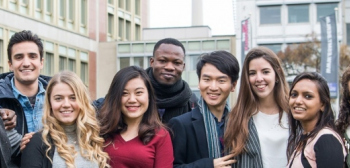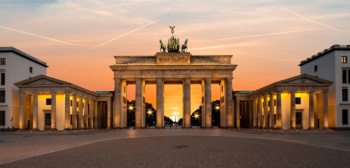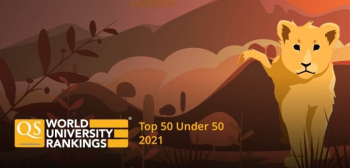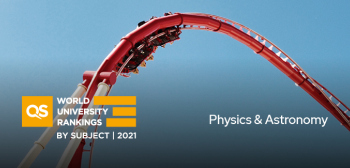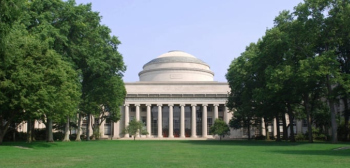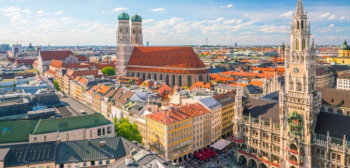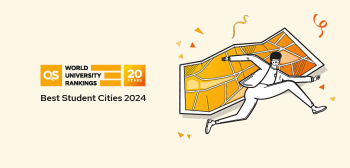萨尔大学
About
Read more
Read less
With its numerous degree programmes and the variety of final qualifications offered (Diplom, Magister, state examinations and, increasingly, bachelor and master qualifications), Saarland University provides the broad spectrum of disciplines typical of a classical universitas litterarum. The more traditional subjects such as business administration and economics, law and medicine are just as much a part of Saarland University as the new degree programmes that have developed from modern interdisciplinary collaborations and which reflect the increasing demand for such qualifications in today's job market. Examples of these new courses include 'Biology with Special Focus on Human Biology and Molecular Biology', 'Bioinformatics /Computational Biology', 'Mechatronics Engineering', 'Micro- and Nanostructured Materials', 'Computer and Communications Technology', 'Historically-oriented Cultural Studies' and 'French Cultural Science and Intercultural Communication'.Integrated degree courses, which can lead to the award of a joint degree, are organized by Saarland University and foreign partner universities in the fields of business administration, physics, chemistry, materials science and in the interdisciplinary programme 'Cross-border Franco-German Studies'. In the area of teacher training, Saarland University offers an integrated bilingual (French-German) course for prospective teachers of geography and history. A further distinctive feature of Saarland University is the fact that the University is able to award French degrees in subjects such as Droit, Allemand und Lettres modernes. Additional qualifications may also be obtained in numerous postgraduate courses. The postgraduate courses in law and economics at the Europa-Institut enjoy an excellent reputation around the world.ResearchComputer science established itself early as a particularly distinctive element in Saarland University's research profile. The expertise in computer science found within the University is complemented by a range of top-class research institutes including the German Research Centre for Artificial Intelligence, the Max Planck Institute for Computer Science and the International Conference and Research Centre for Computer Science at Dagstuhl Castle. Computer science in Saarbrücken has also proved extremely successful in combination with other disciplines. Examples of such fruitful interdisciplinary co-operations include business information technology, law and informatics, computational biology, computational linguistics and cognitive science, the latter being the subject of a nationally funded collaborative research centre.Other collaborative research centres at Saarland University have been established in the areas of biomedicine and materials research. New research centres, one for language research and language technology and one for nanobiotechnology are presently under construction.The skills and expertise at the University in the field of new technologies have led to the creation of numerous spin-off companies. With its specialist young enterprise seminars and a successful start-up centre for spin-off companies, the University is actively promoting innovation and entrepreneurship. To encourage and develop contacts to both the academic and the industrial and commercial sectors, the University has established the Contact Centre for Technology Transfer, and the Centre for Innovative Production, which it runs jointly with Saarland University of Applied Sciences (HTW)
About
With its numerous degree programmes and the variety of final qualifications offered (Diplom, Magister, state examinations and, increasingly, bachelor and master qualifications), Saarland University provides the broad spectrum of disciplines typical of a classical universitas litterarum. The more traditional subjects such as business administration and economics, law and medicine are just as much a part of Saarland University as the new degree programmes that have developed from modern interdisciplinary collaborations and which reflect the increasing demand for such qualifications in today's job market. Examples of these new courses include 'Biology with Special Focus on Human Biology and Molecular Biology', 'Bioinformatics /Computational Biology', 'Mechatronics Engineering', 'Micro- and Nanostructured Materials', 'Computer and Communications Technology', 'Historically-oriented Cultural Studies' and 'French Cultural Science and Intercultural Communication'.Integrated degree courses, which can lead to the award of a joint degree, are organized by Saarland University and foreign partner universities in the fields of business administration, physics, chemistry, materials science and in the interdisciplinary programme 'Cross-border Franco-German Studies'. In the area of teacher training, Saarland University offers an integrated bilingual (French-German) course for prospective teachers of geography and history. A further distinctive feature of Saarland University is the fact that the University is able to award French degrees in subjects such as Droit, Allemand und Lettres modernes. Additional qualifications may also be obtained in numerous postgraduate courses. The postgraduate courses in law and economics at the Europa-Institut enjoy an excellent reputation around the world.ResearchComputer science established itself early as a particularly distinctive element in Saarland University's research profile. The expertise in computer science found within the University is complemented by a range of top-class research institutes including the German Research Centre for Artificial Intelligence, the Max Planck Institute for Computer Science and the International Conference and Research Centre for Computer Science at Dagstuhl Castle. Computer science in Saarbrücken has also proved extremely successful in combination with other disciplines. Examples of such fruitful interdisciplinary co-operations include business information technology, law and informatics, computational biology, computational linguistics and cognitive science, the latter being the subject of a nationally funded collaborative research centre.Other collaborative research centres at Saarland University have been established in the areas of biomedicine and materials research. New research centres, one for language research and language technology and one for nanobiotechnology are presently under construction.The skills and expertise at the University in the field of new technologies have led to the creation of numerous spin-off companies. With its specialist young enterprise seminars and a successful start-up centre for spin-off companies, the University is actively promoting innovation and entrepreneurship. To encourage and develop contacts to both the academic and the industrial and commercial sectors, the University has established the Contact Centre for Technology Transfer, and the Centre for Innovative Production, which it runs jointly with Saarland University of Applied Sciences (HTW)
University highlights
- 2012#364
- 2014#421-430
- 2015#441-450
- 2016#501-550
- 2017#501-550
- 2018#501-550
- 2019#=461
- 2020#=468
- 2021#=451
- 2022#=447
- 2023#=441
- 2024#=600
- 2025#601-610
- 2026#=635
QS Stars is a rating system that helps you select the right university based on your
interests. It provides a detailed look at an institution, identifying which universities rate highest in
the
specific topics that matter to you, like facilities, graduate employability, social responsibility,
inclusiveness, and more.
Campus locations
Saarbrücken, DE,
Saarbrücken , Germany , 66041
Saarbrücken, DE,
Saarbrücken , Germany , 66041
Similar Universities
Macromedia University of Applied Sciences
Mehringdamm 33, Berlin
Macromedia University of Applied Sciences
Macromedia University of Applied Sciences, Berlin
Karlshochschule International University
Karlsstr. 36-38, Karlsruhe
法兰克福财经管理学院
Adickesallee 32-34, 60322 Frankfurt am Main, Frankfurt am Main
Lancaster University Leipzig
The Post, Augustusplatz 1-4, Leipzig
柏林欧洲管理与技术学院
Schlossplatz 1, Berlin
ESCP Europe Business School
Heubnerweg 8-10, Berlin
Related content
Test preparations
Universität des Saarlandes
basic
6
no
2868
L
CN











